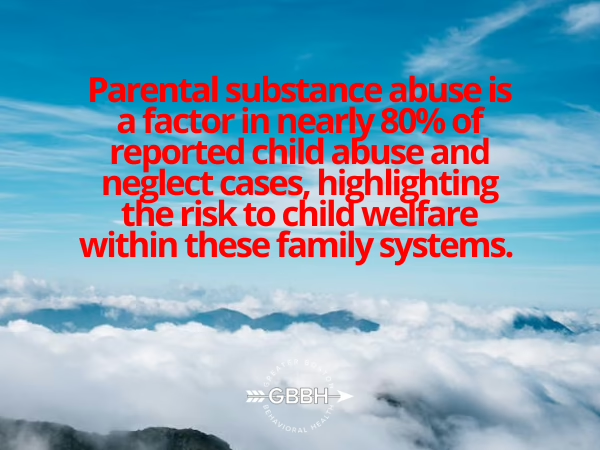A vibrant tapestry, woven with threads of love, trust, and shared experiences, represents a healthy relationship. Now, picture a dark, gnarled thread slowly winding its way through the vibrant weave, distorting the pattern, and weakening the fabric. This dark thread is addiction, a relentless force that can unravel even the strongest relationships.
The intense focus on obtaining and using substances creates a ripple effect, leaving a trail of devastation in its wake. Trust crumbles like sandcastles under the tide of constant lies and broken promises. The joy of connection withers under the suffocating weight of emotional neglect. Financial burdens become a constant source of tension, and resentment festers like a hidden wound.
The Descent into Toxicity: How Addiction Breeds Unhealthy Dynamics
The all-consuming nature of addiction leads to a shift in priorities and values. Here’s a closer look at how this shift poisons the well of healthy relationships:
The Web of Lies
To hide their drug use, addicts often become masters of deception. They weave elaborate stories, deny the obvious, and manipulate situations to maintain their secret. This constant lying chips away at the foundation of trust, leaving loved ones feeling hurt, confused, and perpetually on edge. Every interaction becomes a guessing game, and genuine intimacy becomes an elusive dream.
Manipulation: A Tightening Grip
Desperate to maintain their drug supply or avoid consequences, addicts may resort to manipulation. This manipulation can take many forms, from emotional outbursts designed to elicit guilt to subtle threats or even physical coercion. Loved ones, often out of fear or a misplaced sense of compassion, may find themselves giving in to these demands, further perpetuating the cycle. Controlling behaviors, such as dictating who they can see or where they can go, create a suffocating environment that isolates the addict and breeds resentment.
Emotional Detachment: A Chilling Distance
The relentless pursuit of drugs leaves little room for emotional connection. Addicts become emotionally distant, neglecting the needs and feelings of their partners, children, and family members. Conversations become one-sided, expressions of love and concern fall on deaf ears, and shared experiences become a distant memory. This withdrawal creates a chilling sense of isolation for those who care about the addict, leaving them feeling like strangers in their own relationships.
Financial Strain: A Crushing Burden
The cost of drugs can be astronomical, and addiction often leads to job loss due to unreliability or health problems. This financial burden weighs heavily on families, creating a constant source of stress and arguments. Loved ones may have to make difficult choices, sacrificing their own needs to keep a roof over their heads and food on the table. The resentment that builds from this financial strain can further damage relationships.
The Other Side of the Coin: When Relationships Fuel Addiction
While addiction undoubtedly damages relationships, unhealthy dynamics can also play a significant role in the development or continuation of addiction. Here’s how:
The Ties That Bind: Enabling Behaviors
Sometimes, loved ones, out of fear, guilt, or a misplaced sense of compassion, end up enabling the addict’s behavior. This can involve providing money for drugs, covering for lies, or rescuing them from consequences. While these actions may seem helpful in the short term, they ultimately hinder the addict’s motivation to seek help and prolong the cycle of addiction. Imagine a drowning person; throwing them a life vest might keep them afloat momentarily, but they won’t learn to swim unless they face the water themself. Enabling behaviors do the same – they keep the addict afloat in their addiction but prevent them from developing the skills they need for recovery.
A Trigger-Filled World
Being around people who use drugs can create a high-risk environment for relapse. If a partner or close friend uses drugs, the addict is constantly exposed to triggers that can make it difficult to stay abstinent. Imagine trying to quit smoking while constantly being around people who smoke – the temptation would be immense. The same is true for recovering addicts surrounded by drug use.
The Scars of Abuse: A Vicious Cycle
The presence of domestic violence and abuse in a relationship can be a significant contributing factor to addiction, or a consequence of it. Living in a violent or abusive environment can create immense emotional pain and trauma, which some individuals attempt to numb through substance use. The addiction, in turn, can exacerbate the violence, creating a vicious cycle that’s incredibly difficult to break free from.
Reclaiming Your Life and Building Healthy Relationships in Recovery
There is hope. Addiction is a treatable disease, and healing relationships are possible. Here are some steps you can take to break free from the toxic cycle:
Setting Boundaries and Prioritizing Recovery
Setting clear boundaries with loved ones is crucial for your recovery journey. This might involve limiting contact with certain people, establishing consequences for manipulative behavior, and prioritizing activities and relationships that support your well-being. Remember, you are not responsible for the addict’s recovery, but you are responsible for your own well-being.
Building a Support System of Recovery
Surround yourself with positive and supportive people who understand addiction and recovery. This could include therapists, counselors, support group members, or friends and family members who are committed to upholding your boundaries and encouraging your progress. Support groups offer a safe space to share experiences, learn from others, and feel less alone in your journey.
Open Communication and Honesty
Open and honest communication with loved ones is essential. Talk about your struggles, your recovery goals, and the support you need from them. Be honest about the impact their past behaviors have had on you and how they can contribute to your recovery by respecting your boundaries and offering encouragement.
Reclaim Your Life at Greater Boston Behavioral Health in Massachusetts
At Greater Boston Behavioral Health, we understand the complex interplay between addiction and relationships. Our comprehensive addiction therapy services incorporate a variety of evidence-based approaches, including:
- Cognitive-behavioral therapy (CBT): CBT can help you identify and change negative thought patterns that contribute to addiction and unhealthy relationship dynamics. By learning to challenge these thoughts, you can develop healthier coping mechanisms and build stronger relationships.
- Dialectical behavior therapy (DBT): DBT equips you with valuable skills for managing difficult emotions, improving communication, and building healthier relationships. These skills can be instrumental in navigating challenging conversations with loved ones and setting boundaries.
- Family therapy: Family therapy can help mend broken relationships, establish healthy boundaries, and create a supportive environment for recovery. Through family therapy, loved ones can learn about addiction, gain coping skills for themselves, and understand how they can best support the addict’s recovery.
- Group therapy: Connecting with others who understand your struggles can be incredibly empowering. Group therapy provides a safe space to share experiences, learn from each other, and build a support system.
Learn more about how we can help you or a loved one at Greater Boston Behavioral Health in Needham, Massachusetts. Our team of experienced professionals is dedicated to helping individuals and families overcome addiction and build healthy, fulfilling lives. Contact us today to begin your journey towards healing and hope.
Frequently Asked Questions About Addiction and Relationships
How does addiction impact relationships?
Addiction can have a devastating impact on relationships. It can lead to secrecy, manipulation, emotional neglect, and financial strain, all of which erode trust and create resentment.
Can unhealthy relationships contribute to addiction?
Yes, unhealthy relationships, particularly those that involve violence, abuse, or enabling behaviors, can contribute to the development or continuation of addiction.
Is it possible to recover from addiction and heal relationships?
Absolutely! Addiction is a treatable disease, and healing relationships is possible with work and commitment.
What types of therapy can help with addiction and relationship issues?
Several evidence-based therapies can be beneficial, including:
- Cognitive-behavioral therapy (CBT)
- Dialectical behavior therapy (DBT)
- Family therapy
- Group therapy
Where can I find help for addiction and relationship problems?
Greater Boston Behavioral Health offers wide addiction therapy services that address addiction and co-occurring disorders, including issues related to relationships. We can help you develop a treatment plan that meets your specific needs.
How can I contact Greater Boston Behavioral Health?
You can contact Greater Boston Behavioral Health by visiting our website or calling us at 617-307-3842.
Is addiction treatment confidential?
Confidentiality is a cornerstone of addiction treatment. GBBH adheres to strict HIPAA regulations to protect your privacy.


